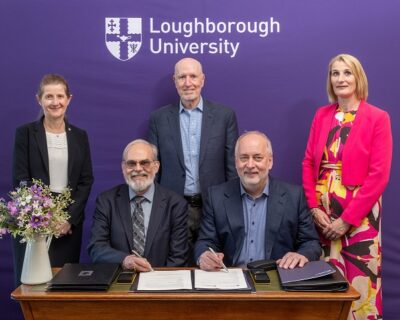New research is looking to the coast to explore ways to generate sustainable hydrogen supplies to power up the UK’s ceramics sector.
The feasibility of creating hydrogen energy for kilns from seawater and nitrogen, via ammonia, is being considered under the PRO-GREEN H2 programme, funded through the Department for Business, Energy & Industrial Strategy (BEIS) Net Zero Innovation Portfolio.
Led by technology innovation catalyst CPI, it will look at the different scenarios whereby the renewable gas could transform the energy intensive ceramics industry.
The programme will include working with Staffordshire-based technology company Lucideon, who are carving out a niche in the implementation of renewable gas for industry.
Since April 2022, Lucideon has been running a pilot kiln, currently operating at 20 per cent hydrogen, from its research centre in Stone.
Under PRO-GREEN H2, Lucideon will look at ceramic firing at up to 100 per cent hydrogen, testing a range of ceramic products and modelling adaptations at this level.
Jon Forster, Materials Delivery Manager at Lucideon, said:
“PRO-GREEN H2 investigates an end-to-end system for the generation and use of green hydrogen, which would be used for fuel switching in ceramics, as well as other manufacturing industries.
“Decarbonising the ceramics sector by switching to green hydrogen would contribute to the UK meeting its CO2 mitigation targets and achieving the goals set out in the UK Hydrogen Strategy 2021.
“We will be looking at developing an on-site, on demand hydrogen generation system, using nitrogen and seawater as the components to convert to hydrogen.
“It is exciting research, which could deliver significant changes to ceramic production and wider industries.”
Michael Hughes, Senior Process Engineer at CPI, said:
“We are currently developing several process engineering concept designs and assessing their economic viability to create low carbon products, as opposed to the natural gas firing of kilns.
“Once a concept has been selected, we will develop this further into an end-to-end system that we will evaluate, from a techno-economic perspective, with the hope to test at demonstration-scale in the future.”



